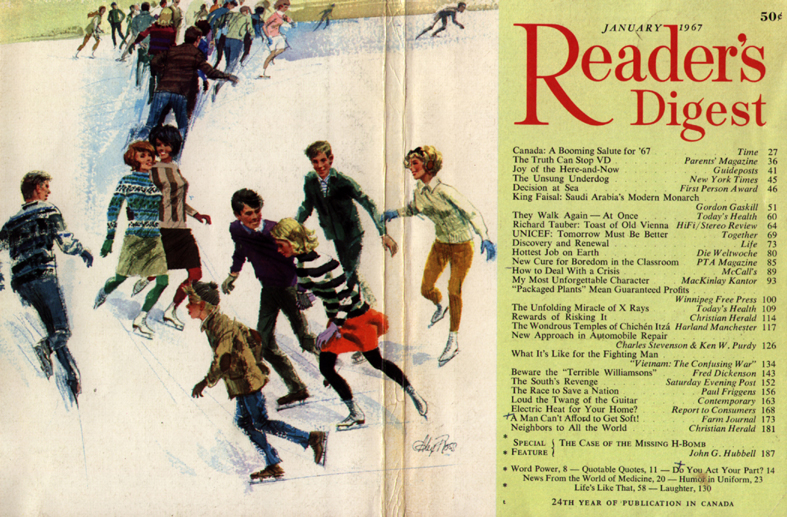This is really sad news. Reader’s Digest in the UK has gone into administration. I remember as a child in Singapore many years ago that, despite being surrounded by learning at an outstanding boarding school, in particular spending hours in a well stocked library, Reader’s Digest was my most valued source of knowledge and the real agent for the broadening of my outlook on life.
The magazine had a wide and eclectic range of essays, all well written in an accessible, informative style. I enjoyed the mix of jokes and real life anecdotes, even the adverts seemed to impart knowledge. But I especially treasured William Funk’s word quiz in particular. So valuable was this magazine to me that I would use some of my modest allowance to buy a copy and devour it, every page, cover to cover.
It was in Reader’s Digest that I read about the life of President Kennedy; of the dangers of smoking (even then!): and of real life struggles against adversity by many extraordinary yet ordinary people. In some respects, Reader’s Digest was a forerunner of Dorling Kindersley’s books in the way they explained and illustrated their stories. I didn’t get the same buzz again until many years later when I bought a set of Encyclopedia Britannica.
I tried a subscription to it here in the UK a couple of years ago, but I think really our 24 hour news culture and the Internet had killed it off. Practically everything I read in it I had already read about somewhere else. We have an incredibly wide source of knowledge and information today. My main sources are the Viigo rss feed on my BlackBerry, and through it Huffington Post, the New York Times, the Daily Telegraph, Slashdot and Techcrunch. I also use Google and Wikipedia a lot, and for a good handle on what passes for the current conversation, Facebook and Twitter.
Given all that, it’s hard to see how there could be a role for Reader’s Digest in any format. But I still have a great sense of loss.

